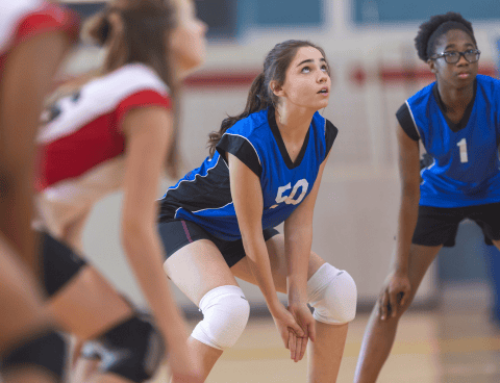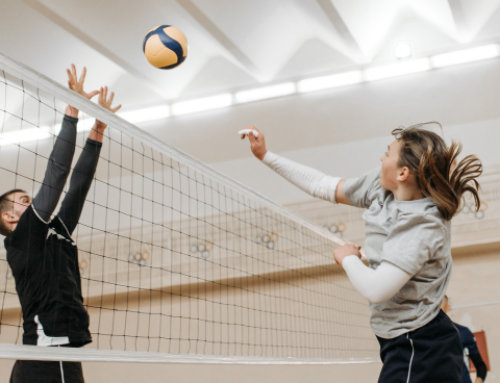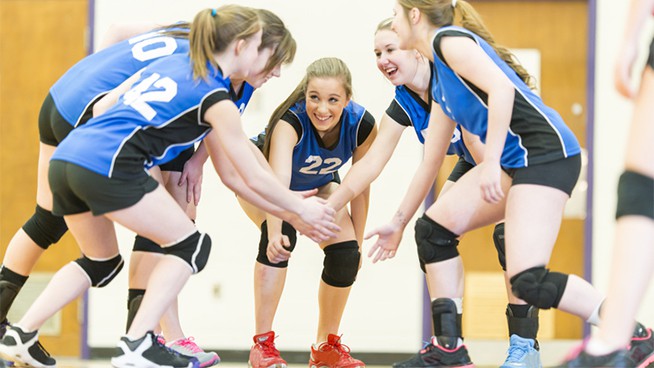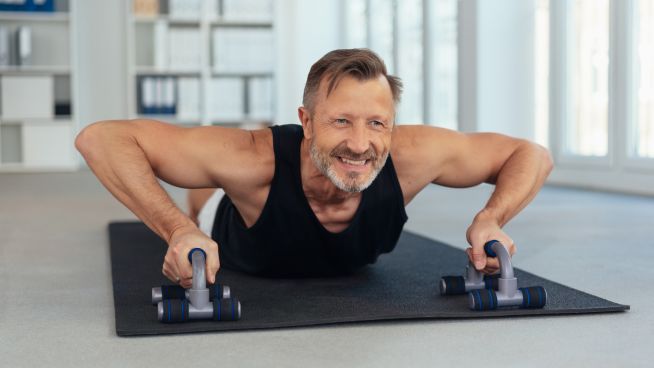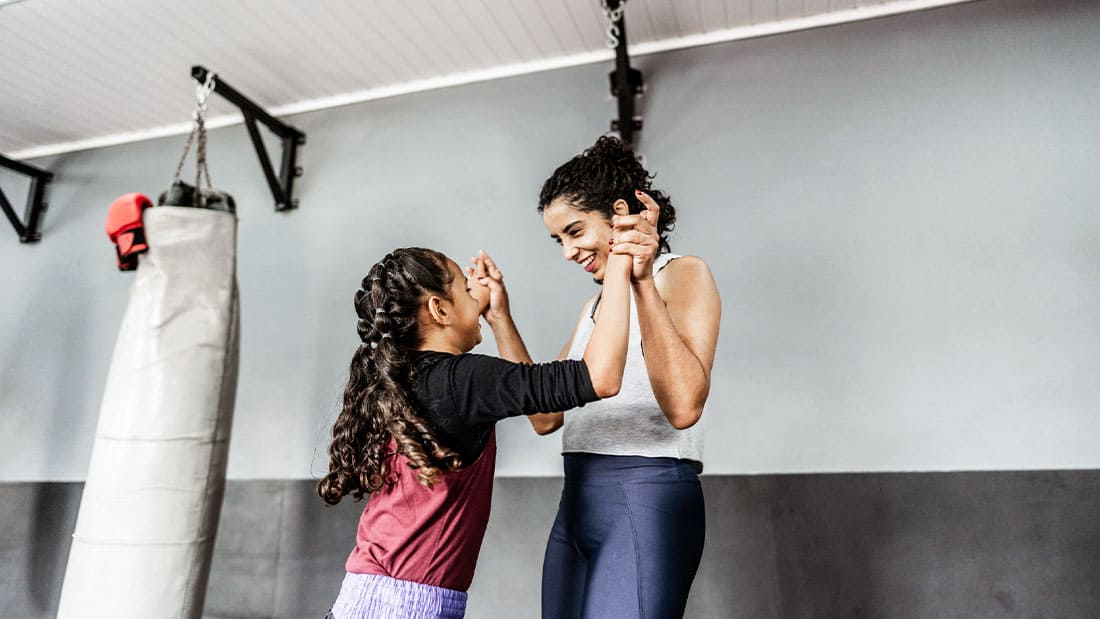The Libero’s Edge- Defensive Techniques and Strategies for High School Volleyball
In the dynamic world of high school volleyball, where spikes and serves reign supreme, a player seeks to rain on their parade. This unsung hero is called the libero. The libero is like a superhero; they possess a particular set of skills that sets them apart from the rest. Their primary objective is to defend against relentless spikes and serves from the opposing team. With lightning-quick movements and an extraordinary ability to read the game, they anticipate every move, every spike, and serve, ready to counter with precision.
Let’s review what a libero is and how to develop the skills.
What is a Libero- The Defensive Dynamo
The libero is a specialized defensive player who has been a game-changer, elevating the level of play by adding a strategic component to volleyball. The libero position was introduced to volleyball in the early 2000s to improve the sport’s overall quality. It became apparent that introducing a designated defensive specialist was perfect for maintaining long rallies that would be more exciting and entertaining for the fans.
This specialized role paved the way for liberos to showcase their defensive talents and skills.
Defensive Specialist
The primary role of a libero is to excel in defensive play. They are responsible for receiving serves, passing, and digging the ball to prevent it from hitting the ground.
Back-Row Player
Liberos are only allowed to play in the back row, which means they cannot perform attacking actions from the front row, such as spiking or blocking. They can, however, perform back-row attacks (attacks made from behind the ten-foot line).
Distinctive Jersey
Liberos wear a different colored jersey than the rest of the team, usually in a contrasting color, to quickly identify them on the court.
They do not Rotate.
Unlike other players who must rotate positions clockwise when their team wins the serve, liberos have a specific replacement procedure. They enter and exit the game without regard to the rotation sequence. This allows them to maintain their defensive position.
Passing Skills
Liberos excel in passing skills, ensuring accurate and controlled ball distribution to the team’s setter. This enables the setter to create scoring opportunities for the team’s attackers.
Quick Reflexes
Liberos need quick reflexes and agility to react to fast-paced spikes and serves, making precise passes and digs.
Communication
Effective communication with teammates is essential for a libero. They often call the shots on whether to pass or let a ball go out of bounds, and they coordinate with other players for coverage.
Steady Demeanor
Liberos are known for their calm and composed demeanor on the court. They handle the pressure of defending against powerful attacks and serve-receive situations.
Game Changers
A skilled libero can be a game-changer, as they are instrumental in preventing the opposing team from scoring points with their defensive prowess.
It’s crucial to acknowledge and value the central position of liberos within the game. They bear the critical duty of shielding the backcourt as the ultimate defensive barrier against the opponent’s assaults. Their rapid reflexes, agility, and keen decision-making render them an irreplaceable component of every volleyball squad. They are the guardians of the backcourt.
How to Strike with Precision
Liberos play a vital role in enhancing the overall quality of play by specializing in defense and ball control. Becoming a proficient libero in volleyball requires skill development, mental preparation, and a strategic understanding of the game.
Here are some ways to develop defensive techniques and strategies to excel in the libero position:
Perfect Passing and Digging Techniques
Practice passing and digging skills regularly. Work on your platform (forearms) passing technique to ensure accurate and consistent ball control. Focus on correct body positioning, the angle of your platform, and timing when passing and digging. To improve your reflexes and control, practice digging various attacks, including hard-driven spikes and off-speed shots.
Footwork and Agility
Develop quick footwork and agility to move efficiently in the backcourt. Work on your lateral and diagonal movements to cover the court effectively. Practice diving and rolling techniques to reach balls beyond your immediate reach.
Anticipation and Reading the Game
Train your ability to anticipate the opponent’s attacks by reading hitters’ body language, positions, and tendencies. Study the film of your opponents to understand their offensive strategies and individual player preferences. Improve your court awareness to position yourself in high-probability defensive zones.
Serve/Receive
Focus on your serve-receive skills to handle various serve types, including float, topspin, and jump. Work on your platform angle and accuracy to consistently direct the ball to the setter.
Communication
Develop strong communication skills to direct your teammates on the court effectively. Be vocal in calling balls in or out and in identifying potential threats. Establish clear and concise signals or calls for your teammates to understand your intentions.
Mental Toughness
Cultivate mental resilience to handle high-pressure situations. Practice maintaining composure during critical moments in a game. Work on your ability to recover quickly after a mistake or unsuccessful play. Mental toughness is crucial in the libero position.
Defensive Drills
Engage in a variety of defensive drills, both solo and team-based, to simulate game situations and improve your skills. Include drills that challenge your reaction time and ability to read the game. Work on reactionary skills and observe your teammate’s body positions when spiking the ball.
Game Analysis
Review game footage to analyze your performance and identify areas for improvement. Seek feedback from coaches and experienced players to gain insights into your strengths and weaknesses.
Physical Conditioning
Maintain excellent physical fitness to ensure you have the stamina and endurance required for long matches. Include strength and conditioning exercises for sport-specific movements to improve agility, speed, and explosiveness. For example, deep squats and lunges.
Work on your hip mobility and flexibility. The better your range of motion, the faster you can move into position. For example, Cossack Lunges and Duck Walks.
Remember that becoming an exceptional libero takes time and dedication. Consistent practice, a thirst for knowledge, and a love for the game will help you develop your defensive techniques and strategies.
Recommended Reading for Athletic Development
If you want to develop your strength, speed, power, and explosiveness, check out the book Instant Strength.
Check out the book The Balanced Body to develop your mobility and flexibility.
If you want to learn how to eat better and healthier for athletics, check out the book Eat to Win.
RECOMMENDED FOR YOU
MOST POPULAR
The Libero’s Edge- Defensive Techniques and Strategies for High School Volleyball
In the dynamic world of high school volleyball, where spikes and serves reign supreme, a player seeks to rain on their parade. This unsung hero is called the libero. The libero is like a superhero; they possess a particular set of skills that sets them apart from the rest. Their primary objective is to defend against relentless spikes and serves from the opposing team. With lightning-quick movements and an extraordinary ability to read the game, they anticipate every move, every spike, and serve, ready to counter with precision.
Let’s review what a libero is and how to develop the skills.
What is a Libero- The Defensive Dynamo
The libero is a specialized defensive player who has been a game-changer, elevating the level of play by adding a strategic component to volleyball. The libero position was introduced to volleyball in the early 2000s to improve the sport’s overall quality. It became apparent that introducing a designated defensive specialist was perfect for maintaining long rallies that would be more exciting and entertaining for the fans.
This specialized role paved the way for liberos to showcase their defensive talents and skills.
Defensive Specialist
The primary role of a libero is to excel in defensive play. They are responsible for receiving serves, passing, and digging the ball to prevent it from hitting the ground.
Back-Row Player
Liberos are only allowed to play in the back row, which means they cannot perform attacking actions from the front row, such as spiking or blocking. They can, however, perform back-row attacks (attacks made from behind the ten-foot line).
Distinctive Jersey
Liberos wear a different colored jersey than the rest of the team, usually in a contrasting color, to quickly identify them on the court.
They do not Rotate.
Unlike other players who must rotate positions clockwise when their team wins the serve, liberos have a specific replacement procedure. They enter and exit the game without regard to the rotation sequence. This allows them to maintain their defensive position.
Passing Skills
Liberos excel in passing skills, ensuring accurate and controlled ball distribution to the team’s setter. This enables the setter to create scoring opportunities for the team’s attackers.
Quick Reflexes
Liberos need quick reflexes and agility to react to fast-paced spikes and serves, making precise passes and digs.
Communication
Effective communication with teammates is essential for a libero. They often call the shots on whether to pass or let a ball go out of bounds, and they coordinate with other players for coverage.
Steady Demeanor
Liberos are known for their calm and composed demeanor on the court. They handle the pressure of defending against powerful attacks and serve-receive situations.
Game Changers
A skilled libero can be a game-changer, as they are instrumental in preventing the opposing team from scoring points with their defensive prowess.
It’s crucial to acknowledge and value the central position of liberos within the game. They bear the critical duty of shielding the backcourt as the ultimate defensive barrier against the opponent’s assaults. Their rapid reflexes, agility, and keen decision-making render them an irreplaceable component of every volleyball squad. They are the guardians of the backcourt.
How to Strike with Precision
Liberos play a vital role in enhancing the overall quality of play by specializing in defense and ball control. Becoming a proficient libero in volleyball requires skill development, mental preparation, and a strategic understanding of the game.
Here are some ways to develop defensive techniques and strategies to excel in the libero position:
Perfect Passing and Digging Techniques
Practice passing and digging skills regularly. Work on your platform (forearms) passing technique to ensure accurate and consistent ball control. Focus on correct body positioning, the angle of your platform, and timing when passing and digging. To improve your reflexes and control, practice digging various attacks, including hard-driven spikes and off-speed shots.
Footwork and Agility
Develop quick footwork and agility to move efficiently in the backcourt. Work on your lateral and diagonal movements to cover the court effectively. Practice diving and rolling techniques to reach balls beyond your immediate reach.
Anticipation and Reading the Game
Train your ability to anticipate the opponent’s attacks by reading hitters’ body language, positions, and tendencies. Study the film of your opponents to understand their offensive strategies and individual player preferences. Improve your court awareness to position yourself in high-probability defensive zones.
Serve/Receive
Focus on your serve-receive skills to handle various serve types, including float, topspin, and jump. Work on your platform angle and accuracy to consistently direct the ball to the setter.
Communication
Develop strong communication skills to direct your teammates on the court effectively. Be vocal in calling balls in or out and in identifying potential threats. Establish clear and concise signals or calls for your teammates to understand your intentions.
Mental Toughness
Cultivate mental resilience to handle high-pressure situations. Practice maintaining composure during critical moments in a game. Work on your ability to recover quickly after a mistake or unsuccessful play. Mental toughness is crucial in the libero position.
Defensive Drills
Engage in a variety of defensive drills, both solo and team-based, to simulate game situations and improve your skills. Include drills that challenge your reaction time and ability to read the game. Work on reactionary skills and observe your teammate’s body positions when spiking the ball.
Game Analysis
Review game footage to analyze your performance and identify areas for improvement. Seek feedback from coaches and experienced players to gain insights into your strengths and weaknesses.
Physical Conditioning
Maintain excellent physical fitness to ensure you have the stamina and endurance required for long matches. Include strength and conditioning exercises for sport-specific movements to improve agility, speed, and explosiveness. For example, deep squats and lunges.
Work on your hip mobility and flexibility. The better your range of motion, the faster you can move into position. For example, Cossack Lunges and Duck Walks.
Remember that becoming an exceptional libero takes time and dedication. Consistent practice, a thirst for knowledge, and a love for the game will help you develop your defensive techniques and strategies.
Recommended Reading for Athletic Development
If you want to develop your strength, speed, power, and explosiveness, check out the book Instant Strength.
Check out the book The Balanced Body to develop your mobility and flexibility.
If you want to learn how to eat better and healthier for athletics, check out the book Eat to Win.

